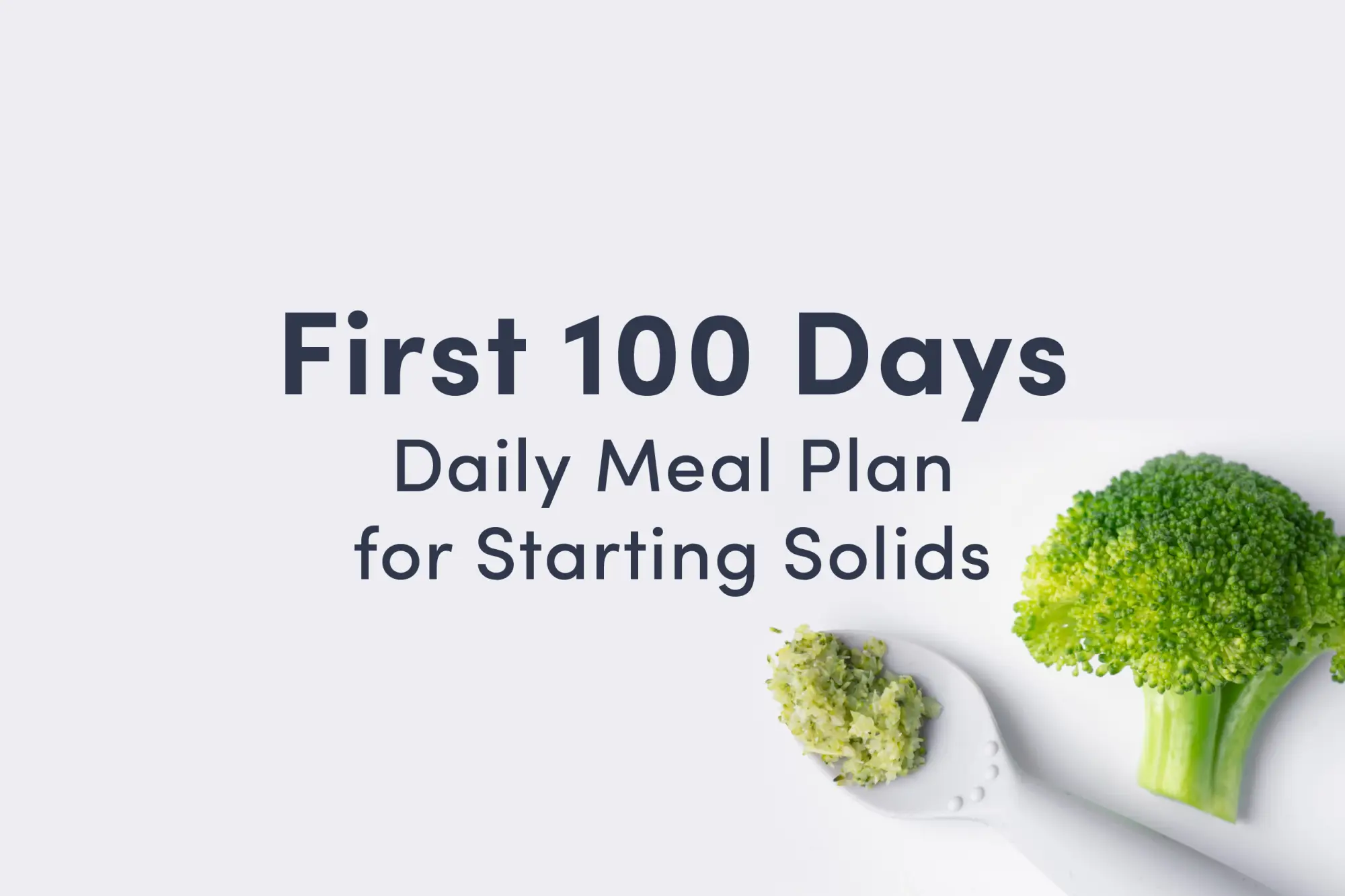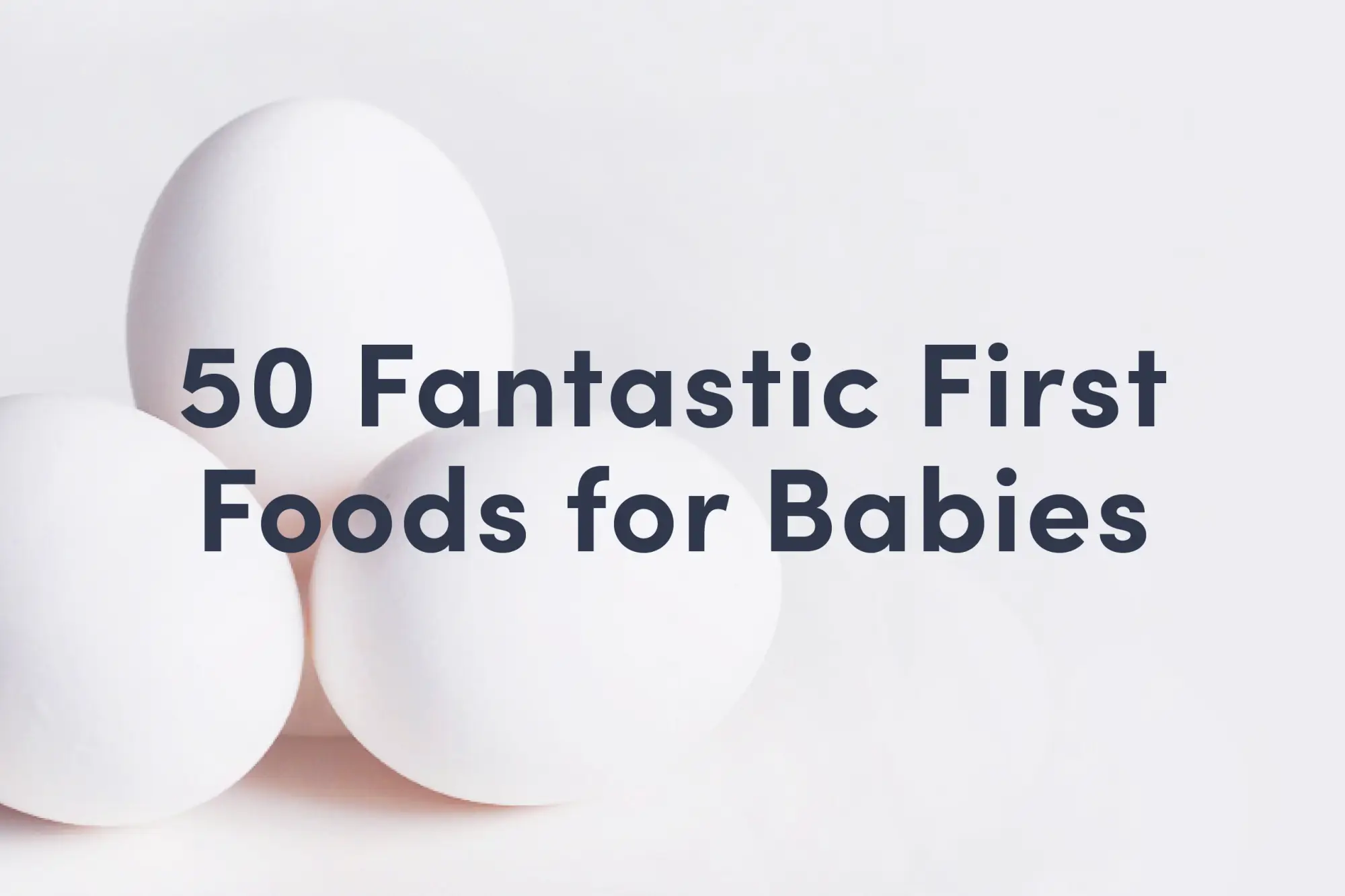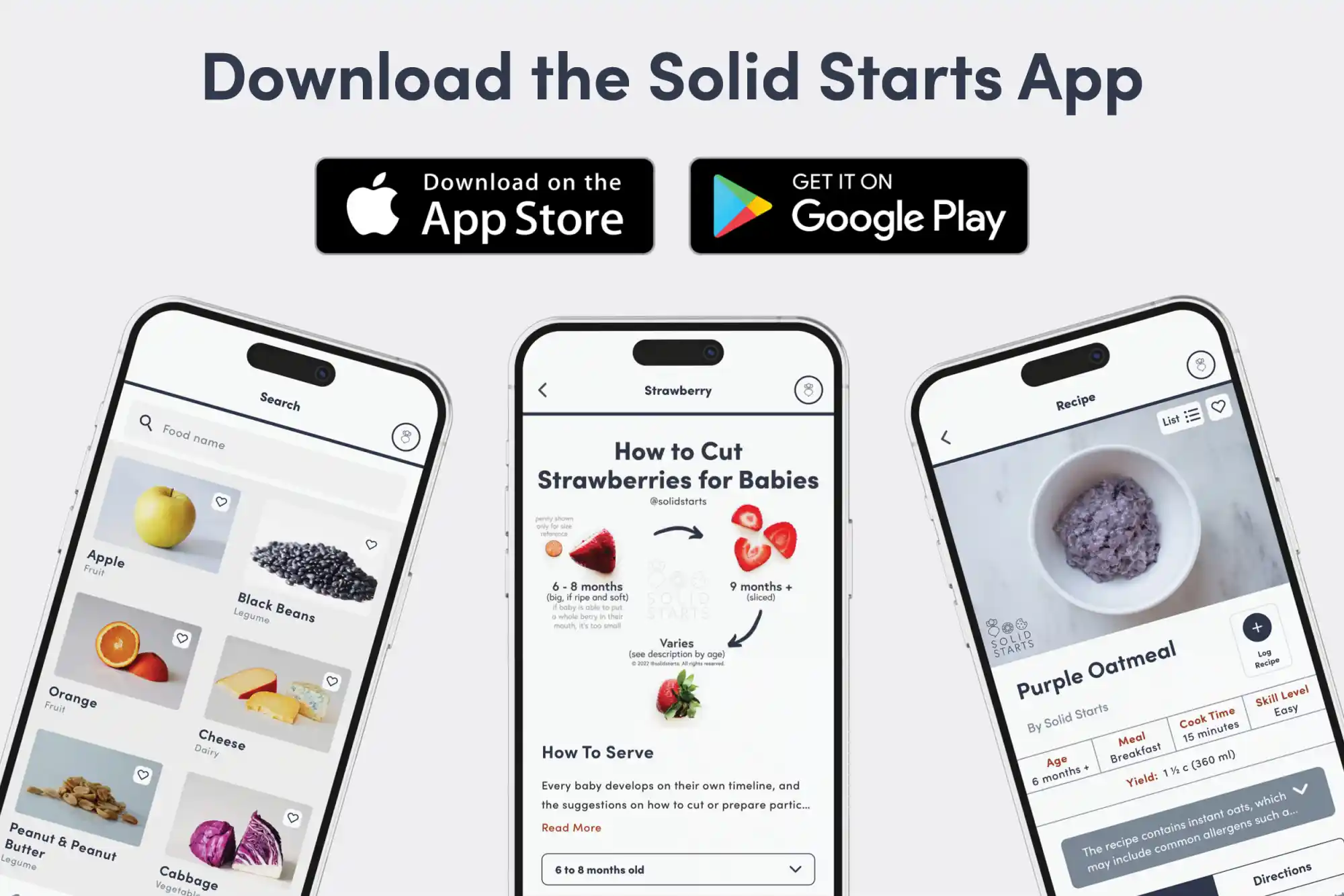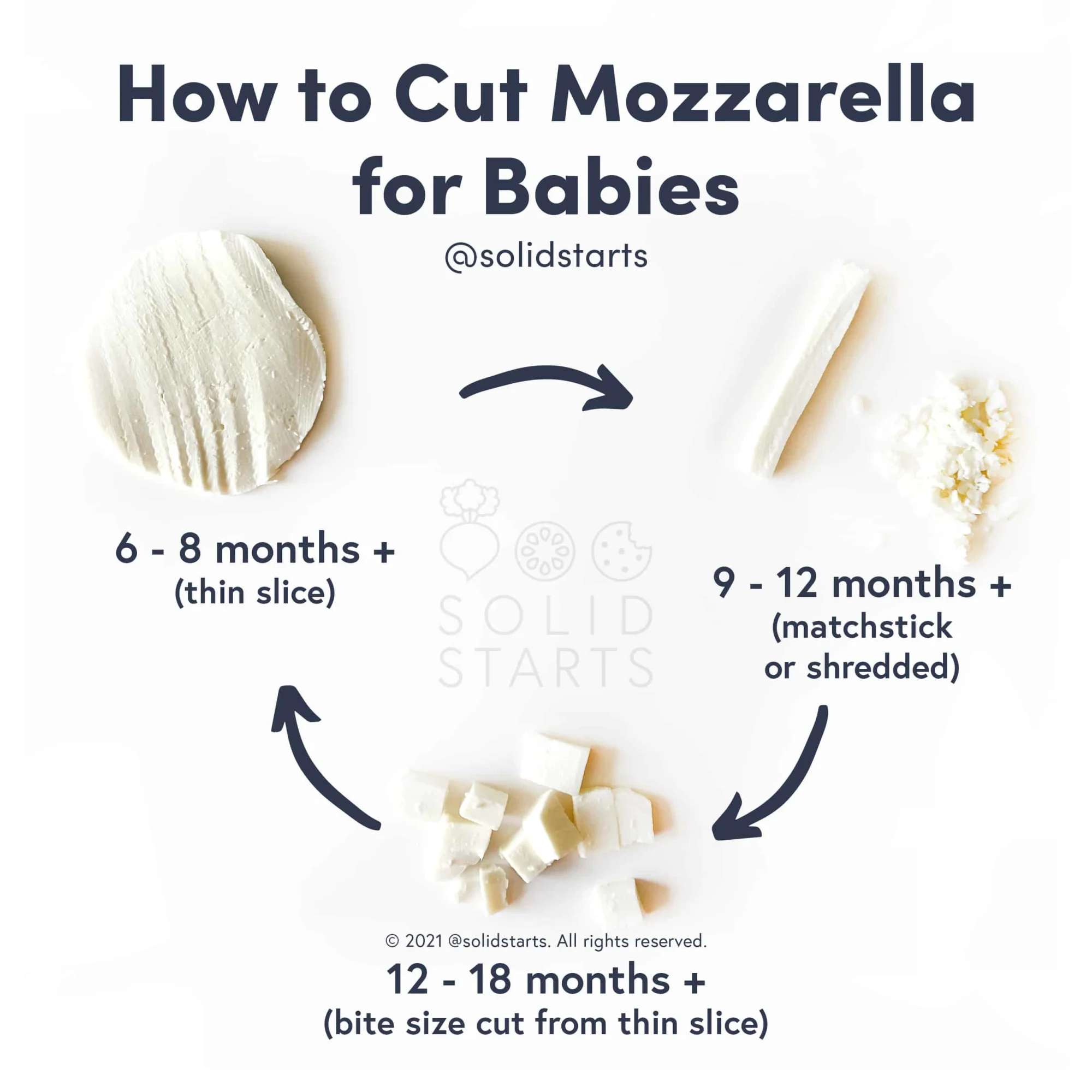Mozzarella Cheese
Dairy
Age Suggestion
6 months
Iron-Rich
No
Common Allergen
Yes

When can babies have mozzarella cheese?
Mozzarella may be introduced as soon as baby is ready to start solids, which is generally around 6 months of age. Choose pasteurized mozzarella to reduce the risk of foodborne illness.
Mozzarella hails from Italy, where it has long been made from water buffalo milk, including Mozzarella di Bufala Campana, which is certified by the European Union with Protected Designation of Origin to guarantee its authenticity. More widely available are mozzarella cheeses made with cow’s milk or from blends of buffalo and cow’s milk. Packaged in water or whey, fresh mozzarella has a short shelf life, unlike the low-moisture mozzarella that is commonly available as pre-shredded cheese, cheese sticks, and firm plastic-wrapped blocks.
Is mozzarella cheese healthy for babies?
Yes. Mozzarella cheese is rich in protein, fat, calcium, selenium, zinc, and vitamins A and B12. Together, these nutrients work together to provide the building blocks for growth, development, and brain function. They also help support bone density, taste perception, vision, energy, and immunity. When shopping, choose pasteurized mozzarella to minimize the risk of foodborne illness.
While certain kinds of mozzarella can be high in sodium, the amount of sodium that babies eat tends to be low as they learn the skills to feed themselves, and some sodium is important for supporting baby’s electrolyte balance, hydration, and movement. Furthermore, sharing family meals, even if they contain salt, has its benefits: baby has opportunities to explore a wider variety of food, share their family food culture, and practice eating a variety of textures.
Is mozzarella cheese a common allergen?
Yes. Mozzarella cheese is often made from cow’s milk, which is classified as a common allergen by the World Health Organization. It is an especially common food allergen in young children, accounting for about one-fifth of all childhood food allergies. Keep in mind that some mozzarella cheese may be made from water buffalo milk, and dairy products from other ruminants such as buffalo, goat, and sheep may provoke similar allergic reactions to cow’s milk dairy products. That said, there’s good news: milk allergy often disappears with time. Research shows that the majority of children with cow's milk allergy will outgrow it by age 6, and many babies with milder symptoms of milk protein allergy (which can show up as painless blood in stool) are able to successfully reintroduce cow's milk as early as their first birthday, with the guidance of their appropriate pediatric health professionals.
Milk and milk products are a common cause of food protein-induced enterocolitis syndrome, also known as FPIES. FPIES is a delayed allergy to food protein which causes the sudden onset of repetitive vomiting and diarrhea to begin a few hours after ingestion. This is termed acute FPIES. Left untreated, the reaction can result in significant dehydration. When milk is in the diet regularly, FPIES can present as reflux, weight loss, and failure to thrive - this is termed chronic FPIES. Symptoms generally improve with elimination of milk and milk products from the baby’s diet. Thankfully, like other forms of milk allergy, FPIES which presents early in life is generally outgrown by the time a child has reached 3 to 5 years of age.
Lactose intolerance, which is when the body has a hard time processing lactose, the sugar that is naturally present in milk, can sometimes be mistaken for an allergy, as it can result in bloating, gas, diarrhea, nausea, and other discomfort. Be sure to connect with an appropriate pediatric health care professional for any questions about lactose intolerance, and know there are many lactose-free dairy foods available.
If you suspect baby may be allergic to milk, consult an allergist before introducing dairy products like cheese. Based on a baby’s risk factors and history, your allergist may recommend allergy testing, or may instead advise dairy introduction under medical supervision in the office. If the risk is low, you may be advised to go ahead and introduce cheese in the home setting.
As with all common allergens, start by serving a small quantity on its own for the first few servings, and if there is no adverse reaction, gradually increase the quantity over future meals. If you have already introduced milk and ruled out an allergy, pasteurized cheese can be introduced as desired, without any need to start small and build up over time.
Is mozzarella cheese a choking hazard for babies?
Yes. Mozzarella cheese can be firm and springy, qualities that increase the risk of choking. To reduce the risk, prepare and serve mozzarella in an age-appropriate way as described in the How to Serve section. As always, make sure you create a safe eating environment and stay within an arm’s reach of baby during meals.
Learn the signs of choking and gagging and more about choking first aid in our free guides, Infant Rescue and Toddler Rescue.
Videos
Is mozzarella pasteurized?
It depends. The vast majority of fresh mozzarella sold in stores is made from pasteurized milk, but regulations on the sale of unpasteurized cheeses vary from country to country. Unpasteurized or raw cheese poses a high risk of foodborne illness, especially salmonellosis and listeriosis, which are harmful bacterial infections for babies, children, and adults alike, with more risk of severe symptoms in babies. Read our cheese page for more information.
Can babies have melted mozzarella?
Yes, but only in scant quantities and once it is no longer hot. Melted globs of cheese represent a choking risk as they can form a sticky plug over the airway. Hot cheese can injure as well as surprise the child, causing them to rapidly inhale, which increases the risk of choking.
How do you serve mozzarella cheese to babies?
Every baby develops on their own timeline, and the suggestions on how to cut or prepare particular foods are generalizations for a broad audience.
6 months old +:
Offer fresh, pasteurized mozzarella (the type sold packaged in water or whey) in wide, flat slices for baby to hold and munch on. Fresh mozzarella can also be shredded and melted into or on top of baby’s foods, but sprinkle sparingly, as globs of melted cheese present an increased choking risk.
9 months old +:
Serve fresh, pasteurized mozzarella in flat bite-sized pieces cut from a thin slice for baby to practice picking up with their developing pincer grasp (where the thumb and pointer finger meet). You can also serve long thin strips or a whole flat slice for baby to practice taking bites from. If baby is shoveling or stuffing lots of food into the mouth, encourage bites by modeling dramatic biting and chewing with your mouth open. You can also offer shredded mozzarella, either on its own or sprinkled into cooked dishes. Just remember to sprinkle sparingly, as globs of melted cheese present an increased choking risk.
12 months old +:
Offer flat, bite-sized pieces of pasteurized mozzarella cut from a thin slice or continue with shredded or large, flat slices of mozzarella. At this age, you can also melt mozzarella in a thin layer on top of foods, but continue to avoid serving large globs of melted cheese.
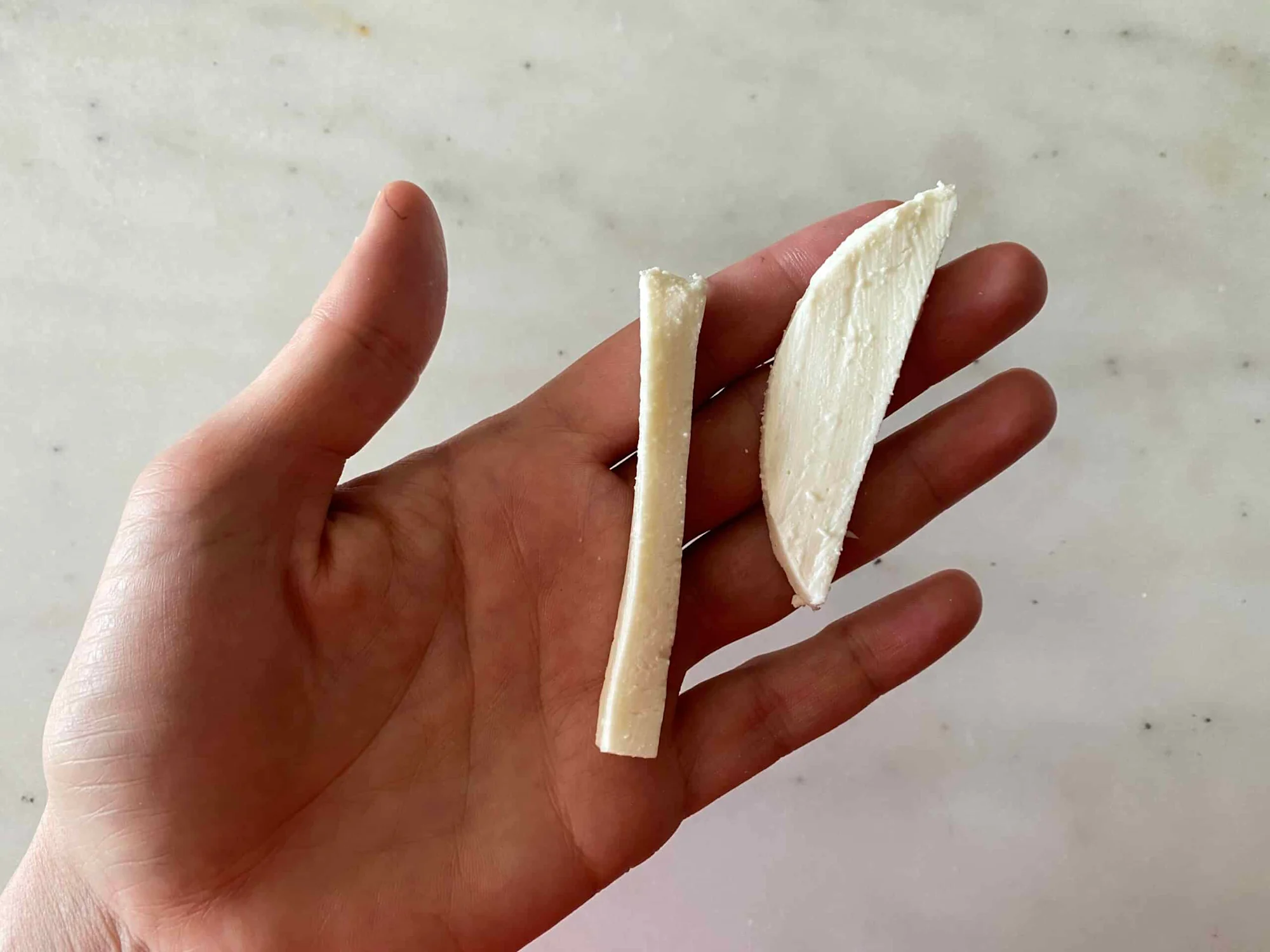
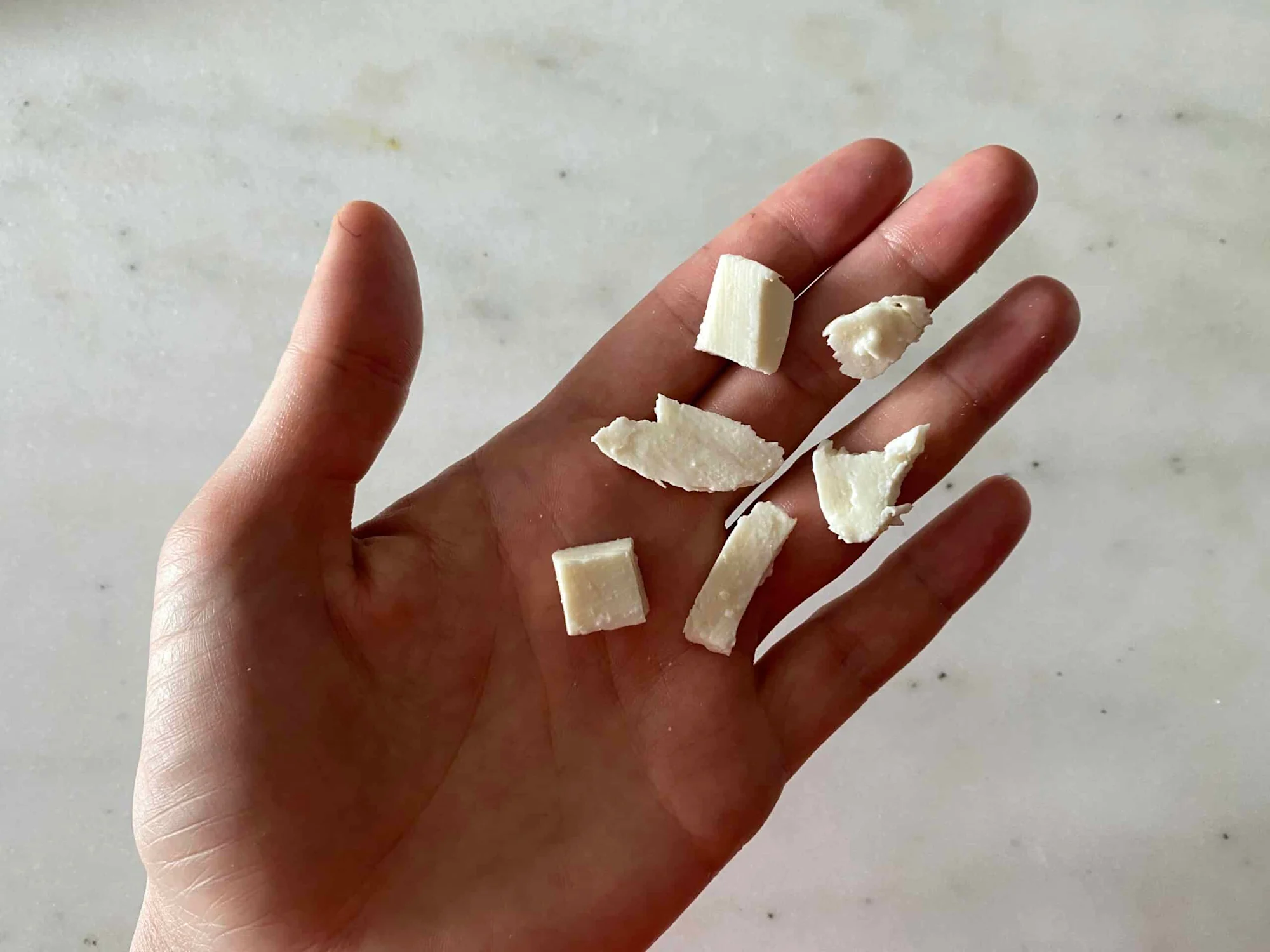
Baby just starting solids? Check out our First 100 Days Meal Plan.
Written by
Expert Tips Delivered to Your Inbox
Sign up for weekly tips, recipes and more!
The content offered on SolidStarts.com is for informational purposes only. Solidstarts is not engaged in rendering professional advice, whether medical or otherwise, to individual users or their children or families. No content on this site, regardless of date, should ever be used as a substitute for direct medical advice from your doctor or your medical or health professional, nutritionist, or expert in pediatric feeding and eating. By accessing the content on SolidStarts.com, you acknowledge and agree that you are accepting the responsibility for your child’s health and well-being. In return for providing you with an array of content “baby-led weaning” information, you waive any claims that you or your child may have as a result of utilizing the content on SolidStarts.com.

